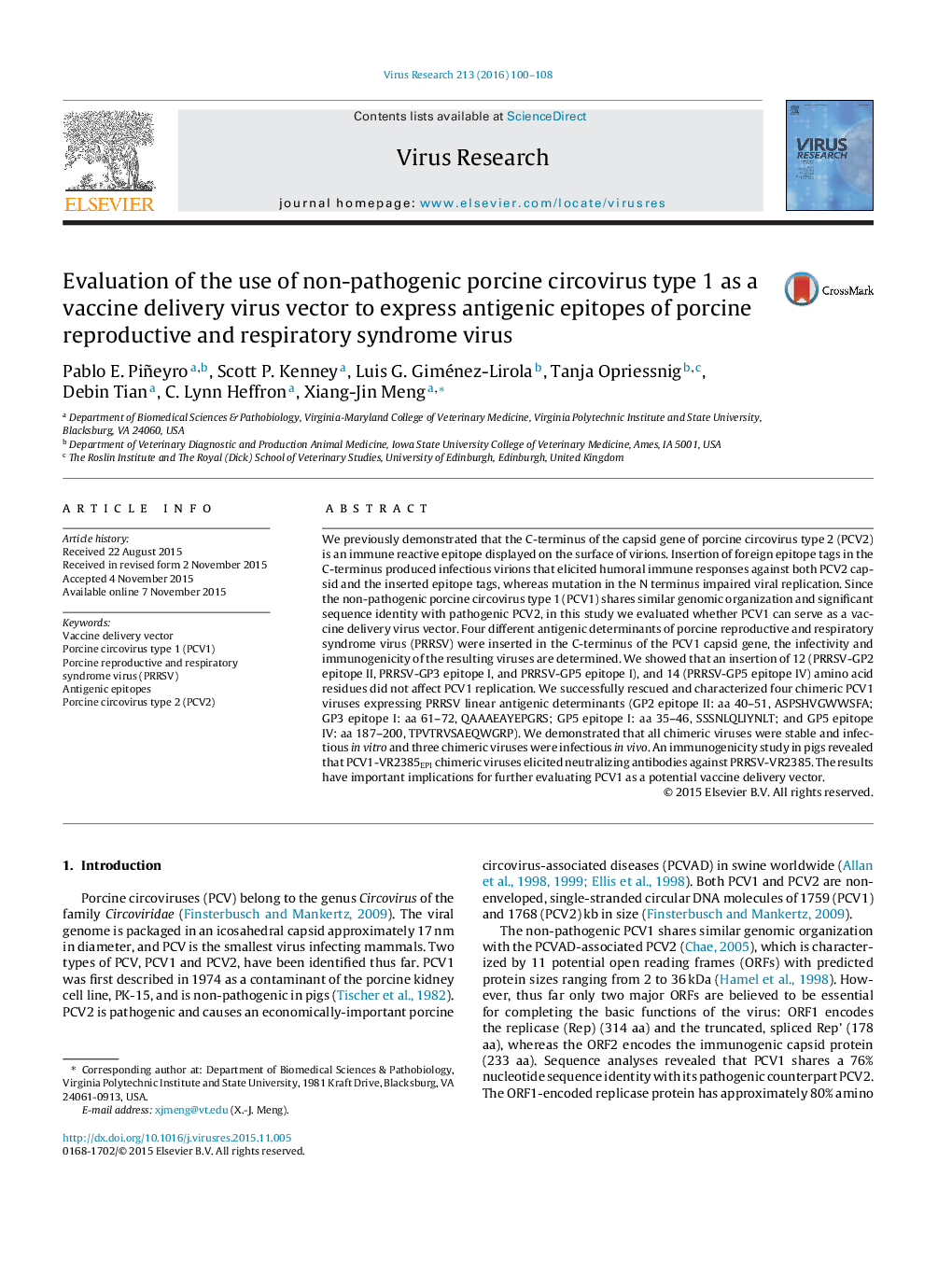| Article ID | Journal | Published Year | Pages | File Type |
|---|---|---|---|---|
| 3427899 | Virus Research | 2016 | 9 Pages |
•Four chimeric PCV1 viruses expressing known antigenic epitopes of PRRSV were constructed and rescued.•The chimeric viruses were stable and infectious in vitro and three chimeric viruses were infectious in pigs.•The PCV1-VR2385EPI chimeric viruses elicited neutralizing antibodies against PRRSV VR2385 strain.•The non-pathogenic PCV1 potentially may serve as a vaccine delivery vector.
We previously demonstrated that the C-terminus of the capsid gene of porcine circovirus type 2 (PCV2) is an immune reactive epitope displayed on the surface of virions. Insertion of foreign epitope tags in the C-terminus produced infectious virions that elicited humoral immune responses against both PCV2 capsid and the inserted epitope tags, whereas mutation in the N terminus impaired viral replication. Since the non-pathogenic porcine circovirus type 1 (PCV1) shares similar genomic organization and significant sequence identity with pathogenic PCV2, in this study we evaluated whether PCV1 can serve as a vaccine delivery virus vector. Four different antigenic determinants of porcine reproductive and respiratory syndrome virus (PRRSV) were inserted in the C-terminus of the PCV1 capsid gene, the infectivity and immunogenicity of the resulting viruses are determined. We showed that an insertion of 12 (PRRSV-GP2 epitope II, PRRSV-GP3 epitope I, and PRRSV-GP5 epitope I), and 14 (PRRSV-GP5 epitope IV) amino acid residues did not affect PCV1 replication. We successfully rescued and characterized four chimeric PCV1 viruses expressing PRRSV linear antigenic determinants (GP2 epitope II: aa 40–51, ASPSHVGWWSFA; GP3 epitope I: aa 61–72, QAAAEAYEPGRS; GP5 epitope I: aa 35–46, SSSNLQLIYNLT; and GP5 epitope IV: aa 187–200, TPVTRVSAEQWGRP). We demonstrated that all chimeric viruses were stable and infectious in vitro and three chimeric viruses were infectious in vivo. An immunogenicity study in pigs revealed that PCV1-VR2385EPI chimeric viruses elicited neutralizing antibodies against PRRSV-VR2385. The results have important implications for further evaluating PCV1 as a potential vaccine delivery vector.
